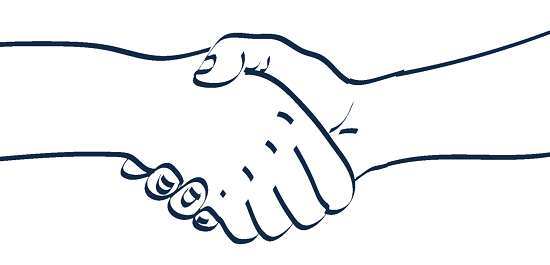Drafting of cooperation agreements
At the start of a collaboration on research with the University of Copenhagen, a cooperation agreement must be drawn up. There are different types of agreements depending on the nature of the co-operation.
Types of agreements
In general, research co-operation at the University of Copenhagen is divided into two categories: co-funded research and commissioned research.
Co-operation agreements concerning co-funded research typically consists of agreements where:
- Both the University of Copenhagen and the collaborator contributes resources to the project
- The project lies within the normal activities of the University of Copenhagen
- The University of Copenhagen is free to conduct further research within the area
- The right to results accrues to the creative party(s)
- The company may be granted a license to use the results of the project commercially
Co-operation agreements on commissioned research or the purchase of research services are typically agreements where:
- The applicant wishes to solve a specific research assignment
- The University of Copenhagen will get all costs (including indirect) associated with the assignment covered.
- The University of Copenhagen has freedom of research in the performance of the assignment
- The right to results accrues to the applicant
- The University of Copenhagen's researchers are allowed to publish the results of the research
Other agreements
If an external party and the University of Copenhagen wish to exchange confidential knowledge before entering into the cooperation agreement itself, special confidentiality agreements must be made. These agreements are called Non-Disclosure agreements (NDA) or Confidential Disclosure agreements (CDA), and can be defined relatively precisely.
The University of Copenhagen has decided that confidentiality of external parties ' confidential information must be limited to max. three years after completion of the project, unless special circumstances warrant that the period is extended.
When material is exchanged between the University of Copenhagen and external parties, a "Material Transfer Agreement" (MTA) is drawn up. However, if the exchange takes place as part of a collaboration, the sharing of material is regulated in the actual cooperation agreement.
If a company wishes to gain access to an invention made by researchers at the University of Copenhagen, they must enter into a licensing agreement.
The University of Copenhagen owns the rights to research results generated by researchers employed at the University of Copenhagen. UCPH Lighthouse handles the patenting and commercialisation process, and is responsible for ensuring that as many inventions as possible are made available to society, typically via licensing agreements with Danish and international companies.
Who negotiates the agreement?
It is IP & Legal that negotiates the above mentioned agreements as they contain a regulation of the intellectual property rights (IPR).
You are always welcome to contact IP & Legal with any questions.
Contact
Legal Team for Research and IP
Tagensvej 16
2200 København Nforsk-IP-jura@adm.ku.dk

